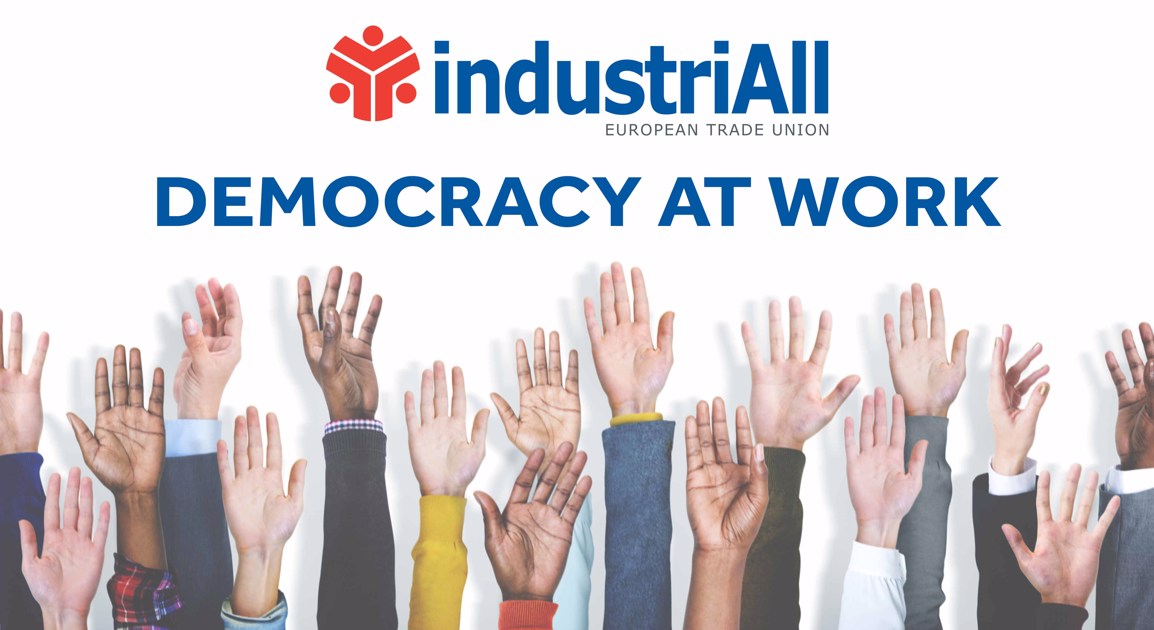IndustriAll Europe promotes a model of social democracy in the workplace that gives workers, both at national and European level, a stronger say in corporate strategy which benefits corporate long-term sustainability as well as socially responsible anticipation and management of change in multinational companies. Information, consultation and participation in envisaged measures, which may affect the future of their company, their work, their employment and their life is a fundamental workers’ right anchored in a broad set of EU legislations.
However, workers’ involvement remains, all too often, a pure formality and has limited impact as worker representatives continue to be presented with a ‘fait accompli’ especially in the event of transnational company restructuring. Compliance to the letter and spirit of EU legislations is not always secured, nor are sanctions effective and strong enough to discourage non-compliance.
At unprecedented turbulent times, the European Commission’s inaction remains inexplicable. The undue delay in releasing its REFIT evaluation of the EWC Directive (due June 2016) as well as its report on the application of the EU quality framework for anticipation of change and restructuring (also due 2016) is preventing any debate about proposals for improvement to advance. The window of opportunity for substantial initiatives to be taken before the upcoming European Parliament elections (and nomination of a new Commission) is vanishing, not least as a consequence of the 2018 Commission work programme being totally silent on the issue of workers’ involvement. Salvation cannot be expected from the proposed European Pillar of Social Rights either. Not only does it take a restrictive view of workers’ involvement (participation rights are not referred to; important pieces of related EU legislation such as the Directive on the European Company Statute are disregarded) but it does not foresee any legislative initiative to strengthen existing rights. At best, the Commission proposes to issue a guidance document on the EWC Directive. Thanks to more than 30 years of practical experience in assisting 560 EWCs, industriAll Europe asserts that guidelines and other soft measures are no longer sufficient and that legally-binding improvements are required for workers’ involvement rights stemming from EU legislation to be fully effective and efficient.
There is no ‘more united, stronger and more democratic Europe’, to repeat the words of Mr Juncker, without effective democracy at the workplace.
IndustriAll Europe therefore urges EU institutions to deliver as swiftly as possible on making workers’ involvement in corporate decision-making an effective right, following our European trade union demands for a more robust European Works Council Directive (see ETUC position paper adopted in March 2017). In addition, industriAll Europe and its affiliated organisations call for European policy makers to advocate for high standards of workers’ involvement in Europe and to adopt a European conception of industrial democracy which relies on an integrated architecture of information, consultation and board-level worker representation (in line with ETUC 2016 position paper). IndustriAll Europe will also pay careful attention to the potential effects the upcoming Commission’s proposal for a Company Law Package (expected by the end of 2017) might have on workers’ rights and ensure national and European rights to information, consultation and participation are secured and strengthened.
See the full Declaration of industriAll European Trade Union’s Company Policy Committee in EN FR DE
Download Press Release in EN FR DE
Contact person: Aline Conchon, aline.conchon@industriall-europe.eu, +32 22 26 00 54
